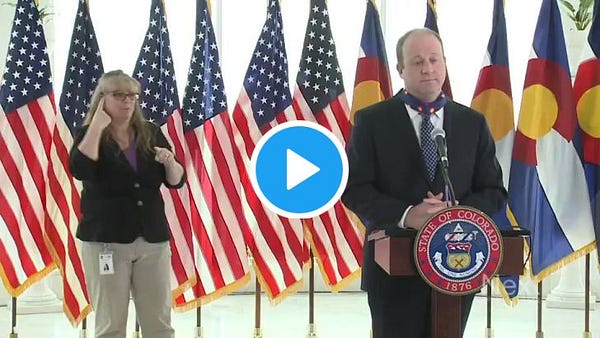Week of April 20, 2020
A few things of note from around the Internet this week:
Unlimited
America’s billionaire class has seen their wealth increase by 10% since the beginning of the COVID-19 pandemic. Ben Hunt:
Could this possibly be a bad idea ... some form of moral hazard ... for the federal government to insure the rich investors against capital market losses by buying TRILLIONS of dollars in financial assets and providing TRILLIONS of dollars in interest-free loans liquidity facilities? You know, provided that these losses weren't their fault.
LOL.
These are exactly the same people who paid off Goldman Sachs 100 cents on the dollar with their AIG losses in 2009. You think they give a flying f*ck what you think about moral hazard or precedent or optics or fairness or decency? You think these oligarchs and their CNBC/fintwit Renfields care about ANYTHING other than getting their MONEY back?’
Collective
In this investment memo for Cumberland Advisors, Peter and Jeffrey Gold lay out a plan for a health and economic recovery.
For the foreseeable future we need to regard this pandemic as a blockage in an all-important river. That river is our lifeline as it flows from the mountains to the delta and then to the sea. Imagine that this river becomes partially blocked by a mountain collapsing into it. What happens? Some of the water gets diverted, creating new tributaries. While all or part of the blockage is being removed or altered, we can normalize some of the consequences of the blockage. We must find new paths around the blockage or, better yet, look for ways to put these new waterways to use for our population. They can spur new opportunities, like power plants, natural irrigation, recreation, commercial fisheries, different modes of transportation, and sources of clean water. In a like manner, we must also normalize and harness this naturally occurring pandemic as we clear the blockages it has caused. Optimally this will be a collective effort and also, importantly, be based on the creativity of individuals, whether they work in industry, government, or nonprofits, or don’t work at all.
Update
Peter Attia with the most straightforward explanation of where we’re currently at in the timeline.

Are we in the somewhat favorable state we are in today because of how well we’ve contained the virus, how well we’ve “flattened the curve?” Or are we in this state because the SARS-CoV-2 virus is less deadly than we initially thought?
If possible, let’s try to have this discussion with as little emotion as possible. Instead, we should think about it through the lens of what we know about logic, supposition, and probabilities.
Visual

The visuals in this explainer are incredible. Recent research suggests that maybe ventilators aren’t quite as useful as originally thought, though.
Hype
The only way that face masks will become widespread in the West is if they come become fashionable.
It feels a bit weird to trivialize the face mask as a trend, given people are wearing them because they don’t want to catch a life-threatening virus. They are not a must-have accessory, but a literal must-have to help avoid, like, dying. Still, self-expression lends itself to any blank canvas, and it goes without saying that some masks are cooler than others.
Gates Note
Bill Gates wrote about the first modern pandemic.
Leadership


The question:
We are hearing a lot of reports around here … about neighbors reporting on other neighbors for not following the orders … rebellion out here against your orders which have been called tyrannical, against local health department orders being equated to Naziism. How do you react to that? What do you say to those people who are clearly getting frustrated with this stay at home order?
Gov. Polis’ was incredible and included:
As a Jewish American who lost family in the holocaust, I’m offended by any comparison to Naziism. We act to save lives. The exact opposite of the slaughter of six million Jews and many gypsies and Catholics and gays and lesbians and Russians and so many others.
He starts to lose his composure, but then regains it.
He follows with:
It’s not a contest to see what you can get away with. It’s a contest to see how well you can stay at home. By not staying at home, by having parties, by congregating, you are not sticking it to the government. You are not sticking it to Jared Polis. You are sticking it to yourself because you are putting yourself and your loved ones in jeopardy and you are prolonging the economic pain and difficulties your fellow Coloradans face.
He finishes with:
Now is the time for us to act with unity, to act together, to do the best that we can …
This is leadership in the time of crisis. In the midst of a question that clearly provoked an emotional reaction, Gov. Polis answered the question incredibly clearly with a positive, thoughtful, and unifying, rather than divisive and hostile, response.
If you liked this post, why not share it? Everyone needs a few more interesting things to read.
